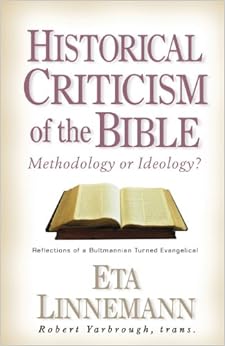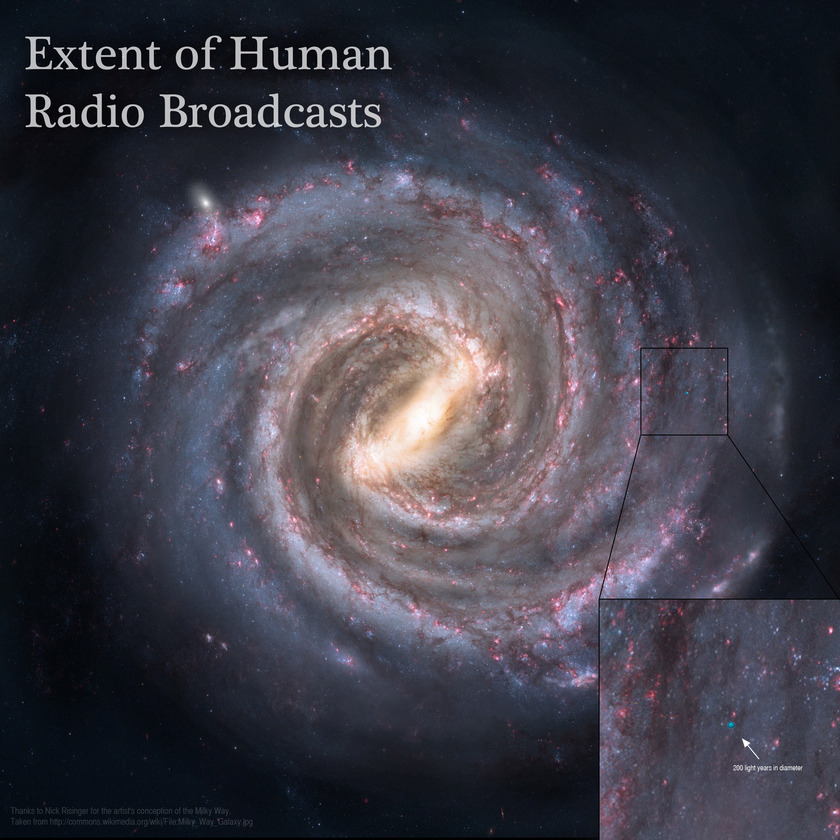In the early 19th century, Alexander Campbell wrote the following in his masterful
The Christian System:
"
The words and sentences of the Bible are to be translated, interpreted, and understood according to the same code of laws and principles of interpretation by which other ancient writings are translated and understood; for when God spoke to man in his own language, he spoke as one person converses with another, in fair, stipulated, and well established meaning of the terms. This is essential to its character as a revelation from God..."
Today, the historical critics have (mostly) taken Campbell at his word, leaving many in the Restoration Movement unhappy.
The Dictionary of the Bible defines
historical criticism as "a modern and tested method of exploring [the]various origins [of the Old and New Testaments] and tracing their development and significance within their specific historical contexts."
This much is uncontroversial.
All reputable scholars and commentators past and present have attempted to understand and explain the biblical material by an appeal to its grammar and history (an approach aptly called the grammatical-historical approach).
However, the historical critical method of the 18th century went beyond the bounds of what many Christians from the beginning have thought appropriate, challenging the inspiration, infallibility, and inerrancy of the Bible.
While most evangelical scholars of the Bible utilize the higher critical method without problem in their academic work, some run into conflict with the doctrinal statements of their universities or the doctrinal consensuses of their theological communities and are forced to retract statements or resign their posts (assuming they are not let go).
This has happened at least once at a Restoration Movement institution.
In 2012, Lincoln Christian University fired Dr. Anthony LeDonne, then assistant professor of New Testament and Second Temple Judaism at LCU, because supporters of the university were upset that, among other things, he denied any objective interpretation of history and, by extension, the Bible (see two separate takes on the situation
here and
here, as well as LeDonne's statement
here).
LeDonne took with him another sharp and rising scholar, who did his undergraduate work at a Stone-Campbell school (CCU) and who also taught New Testament at LCU, Chris Keith, who voluntarily left the institution for related reasons.
 |
| Anthony LeDonne |
During the brouhaha, Peter Rasor, a Restoration Movement guy and currently a professor of theology at Grand Canyon University, reported how LeDonne in his book on the historical Jesus contended, "The historian who is intent to find ‘an objectively true picture’ of Jesus has simply misunderstood the historian’s task to account for varying and evolving social memories and explain their most plausible relationship", (76).
While the conclusions reached by LeDonne and the process by which he reached them are not academically controversial, they do fly in the face of what the average member of a Christian Church or Church of Christ believes about biblical interpretation.
To many, the idea that the past is irretrievable apart from layers upon layers of subjective interpretation and reinterpretation and that objective scrutiny is impossible sounds like we cannot really know what the Bible says.
Further, LeDonne states in the book "when dealing with sources for the life of Jesus, there are no ‘original’ documents to be found; there never were” (70).
Since most Christian Churches have in their statements of faith something about the "original copies" of the New Testament or the "autographs" and their inerrancy, this conclusion is disconcerting.
Indeed this is how higher criticism undermines the Bible's authority, according to its critics.
It is an unbounded approach that treats the Bible like any other document, meaning no questions or conclusions are off the table if you can argue for it.
This had led to countless conclusions that, if true, would radically alter the Christian faith or even render it untrue.
Furthermore, because historical criticism sees the Bible as merely human, it is implicitly biased against the supernatural and thus wherever necessary seeks to find naturalistic explanations for the plethora of the Bible's supernatural phenomena.
This is important to understand.
However, it is not the complete story.
Historical criticism has improved our understanding of the Scripture in its natural context and corrected many thoughtless impositions of later theological stances and concepts onto the inspired text.
Furthermore, it has enriched our understanding the human side of Scripture's authorship and the authors' roles in selecting, editing, and arranging their material.
In addition, while systematic theology can flatten out the rich variety of the biblical genres it its pursuit of continuity and coherence, historical criticism has marshalled against simplistic, prooftextual readings which fail to appreciate the individual perspectives of each book, its author(s), and the community it speaks to.
Of late, my own academic institution, Cincinnati Christian University, has been targeted by those who believe the approaches and conclusions of certain scholars in CCU's biblical studies department (I am not a biblical studies student by the way), are nothing more than rank "liberalism" in the Brotherhood.
Unsurprisingly, their concerns can be traced back to a fundamental worldview difference on the legitimacy of historical criticism of the Bible.
The response, of course, is that the critics of historical criticism are simply out of touch with anything more than a surface level reading of the Bible and fail to even entertain ideas that challenge established doctrinal beliefs, even if those beliefs are not as biblical as they appear from a "plain reading" of the text.
This fundamental divide is felt not only in the Christian Church world but in the larger Evangelical community (just Google "Michael Licona and Norman Geisler" for proof of that).
I have people I respect on both sides of this issue and am not afraid to disagree with anyone, even those whom I admire and esteem highly.
I believe that historical criticism of the Bible with its methodological naturalism (that is, assuming for the sake of argument that the world is absent of anything beyond nature) is unable to give us an accurate picture of the Bible to the extent that the Bible is the product of a divine mind (of course, not neglecting its human authors).
Thus, when historical Jesus scholars, for example, tell me that Jesus was this, that, and the other thing, but certainly not what the Church has always believed him to be, by looking at how they arrived at their conclusions, I can see we could never have arrived at the same conclusions due to fundamentally contrary hermeneutic approaches that flow from a difference of opinion about what the Bible
is.
A number of fine scholars who are in no way anti-intellectual are also of this opinion, such as Robert Yarborough of Covenant, Thomas Howe of Southern Evangelical, Vern Poythress of Westminster, Gerhard Maier of Tübingen in Germany, and Scott Hahn of Franciscan University, among others.
At the same time, this is
not to say historical criticism is anti-Bible or anti-Christian, or that it cannot be used without denying some essential tenet of the faith.
What is more, I believe that to retreat into an enclave of perceived doctrinal purity (which the above scholars would not advocate, but what some loud critics in the Restoration Movement seem to argue for) is nothing more than privileging tradition over an honest pursuit of Bible doctrine and refusing to treat the Bible with the maturity it deserves.
For myself, I was only introduced to historical criticism by way of Muslim apologetics against the divinity and trustworthiness of the Bible--a poor introduction indeed!
My faith survived, but the faith of many do not because instead of promoting understanding and free inquiry, certain critics of historical criticism decide the winners and loser beforehand based on nothing more than the assumption that their interpretations of certain biblical passages and concepts (like inspiration, for example) are correct.
This type of approach is repellent to critical thinkers and fails to do justice the intellectual integrity of Christian faith and discipleship.
So what then is the way forward?
First, let's clarify four things:
One, the "strong" doctrine of Scripture is true (ie., the Bible is exclusively authoritative, infallible, understandable, generally self-sufficient, internally consistency, has objective meaning, and is universally applicable [to borrow from Christian Smith's definition of "biblicism"]).
Two, to the extent that we approach the Bible with a denial of point one, it is impossible to get a coherent message out of the Bible in all its richness.
Three, when we apply the methods of historical criticism to the Bible which (normally) assume naturalism and view the Bible as merely a human book, with all the expected shortcomings of such human books, we expect to not get a coherent message out of the Bible, which can only be fully understood in the light of its divine aspects.
Four, it is generally accepted that beyond the grammatical-historical approach to biblical criticism (which looks simply at the grammar of the passages and seeks to place the passages in their historical context), the various methods of historical criticism (be it form, redaction, source, etc.), yield helpful insights into Bible truth and should not be abandoned wholesale, which would also be intellectual and academic suicide.
Thus, I propose evangelical scholars "play the game" of historical criticism, using it for expediency's sake, all the while judiciously noting the ways it fails and must fail to adequately capture the Bible for what it is, a divine-human text, and proposing better alternative views.
We should not attempt to prove the Bible errorless by appeals to historical criticism (a failed project) or pretend that evangelical or Restoration Movement convictions about the Bible can be fully can be integrated with or arrived at by the fundamental assumptions of historical criticism (i.e., the Bible is limited, fallible, errant, non-coherent, etc.).
Like in collegiate debate where participants must often debate for a subject they do not believe in, we should engage the larger academic world in the language of historical criticism, while, in reality, being prepared to explain why the historical critical approach stops short of the full story.
Understanding this, laypeople need to give grace in light of the challenges faced by Christian academics, we need to move beyond a Sunday School view of the Bible to a mature view, one that sees the Bible not as heavenly dictations, but a divine-human text;
and be prepared to disagree with love and collegiality.
Also, can we stop kneecapping ourselves by chasing away the best and brightest of evangelical scholarship and instead assure our scholars (I'm talking about the Restoration Movement) that we have their backs?
I know I do not agree with some of the philosophical assumptions and specific beliefs about the Bible held by the Biblical Studies faculty at CCU (which is not a monolith).
However, every day I am enriched by their knowledge and learning, as well as encouraged by our common fellowship in Christ Jesus.
As the saying goes, "...in all things charity."












